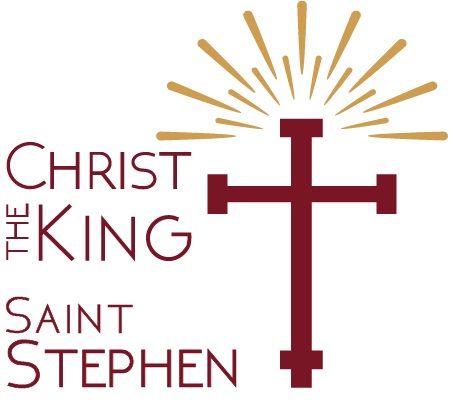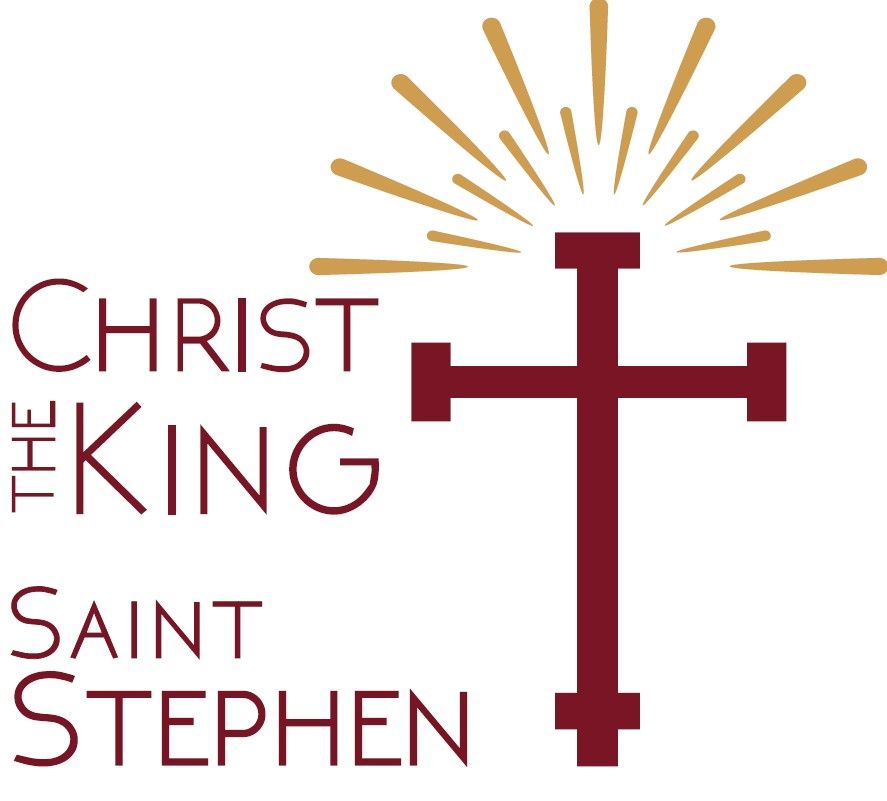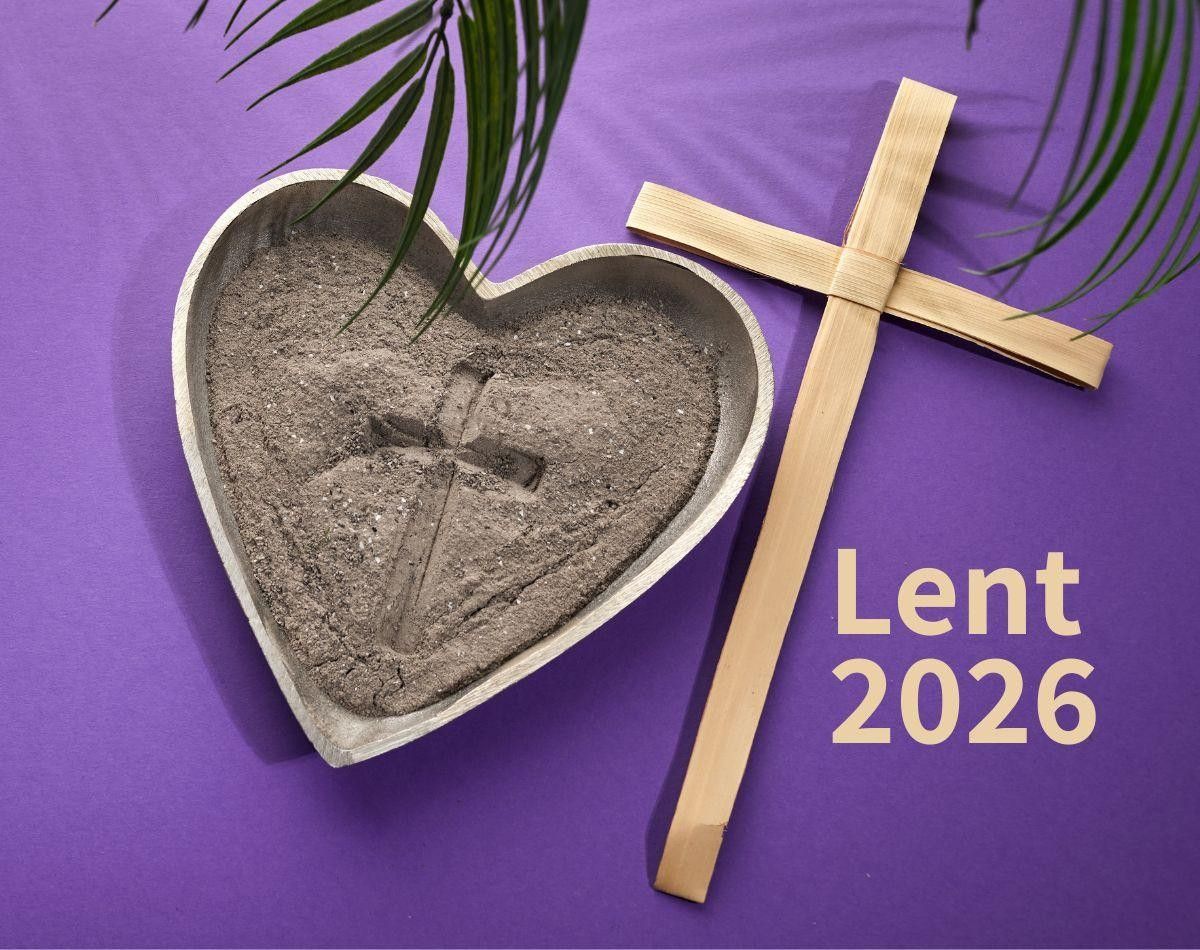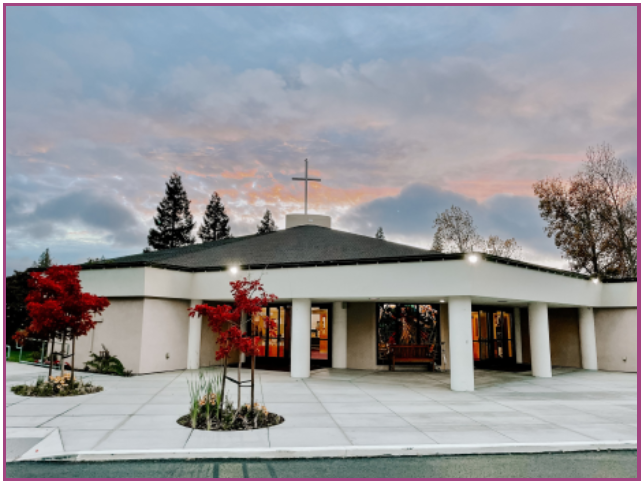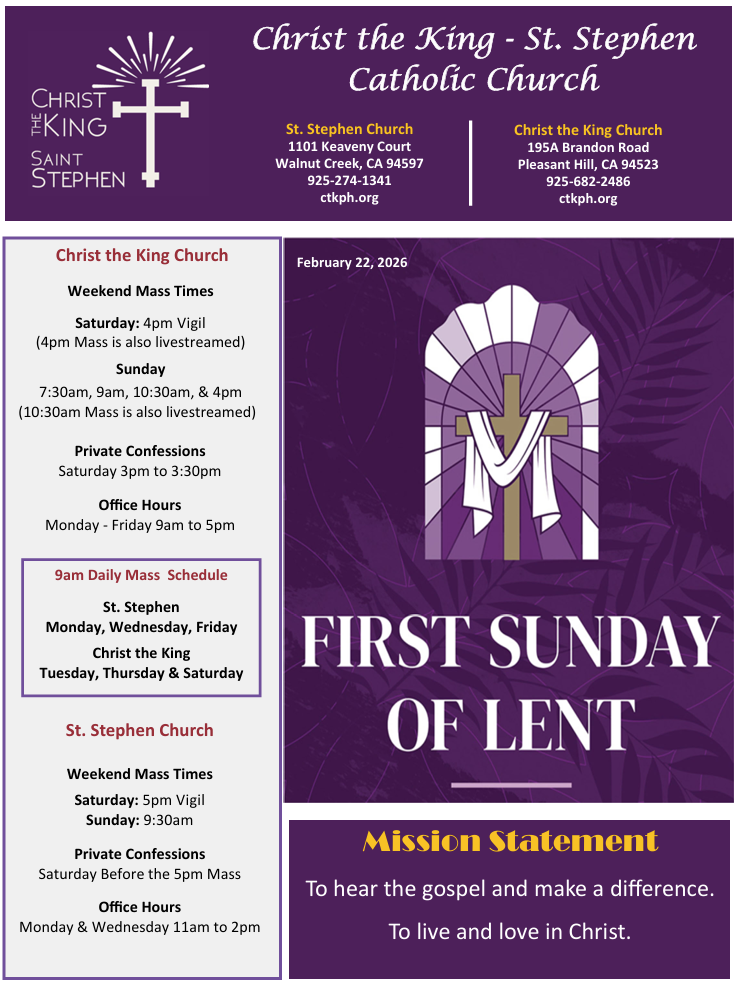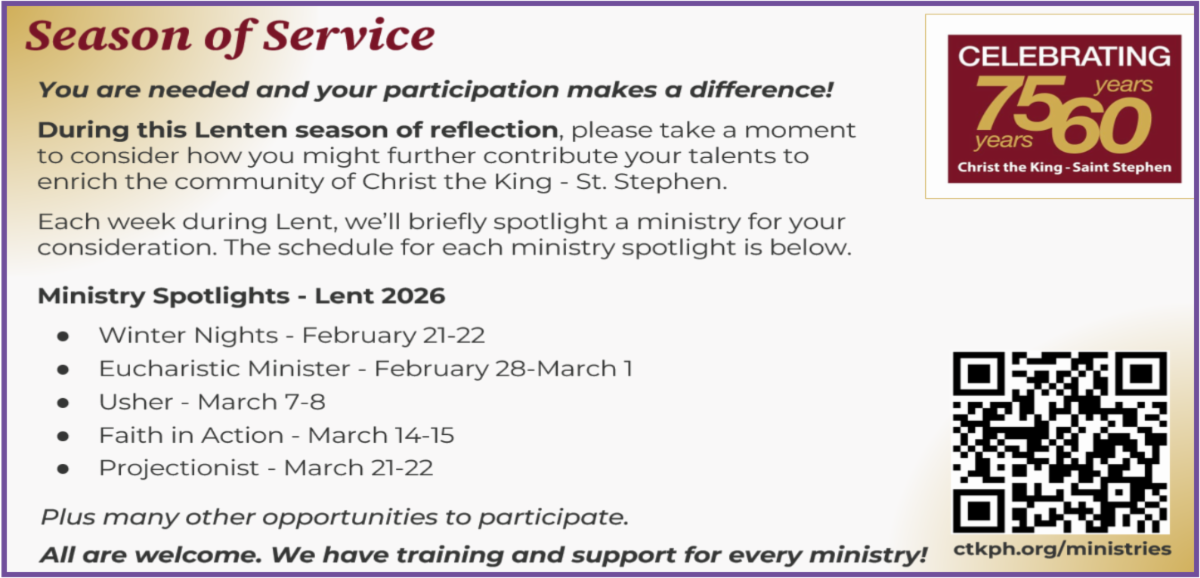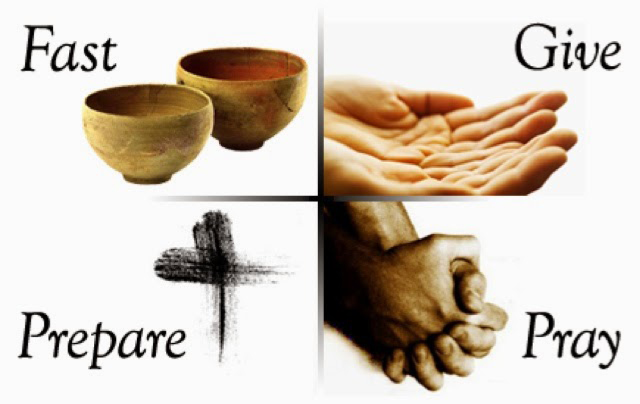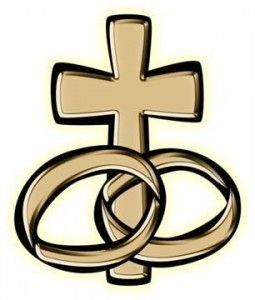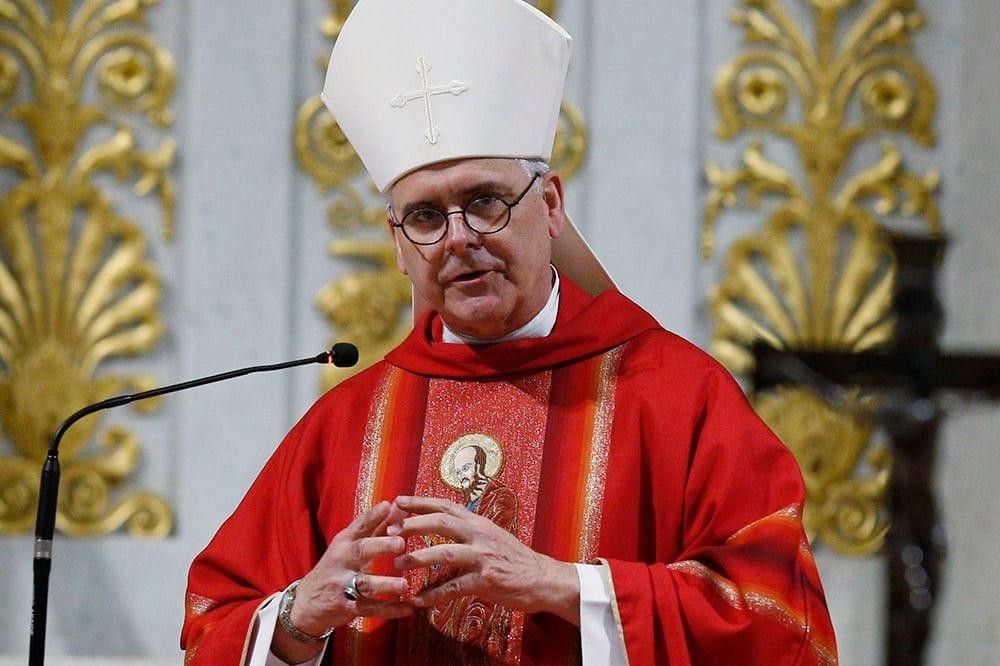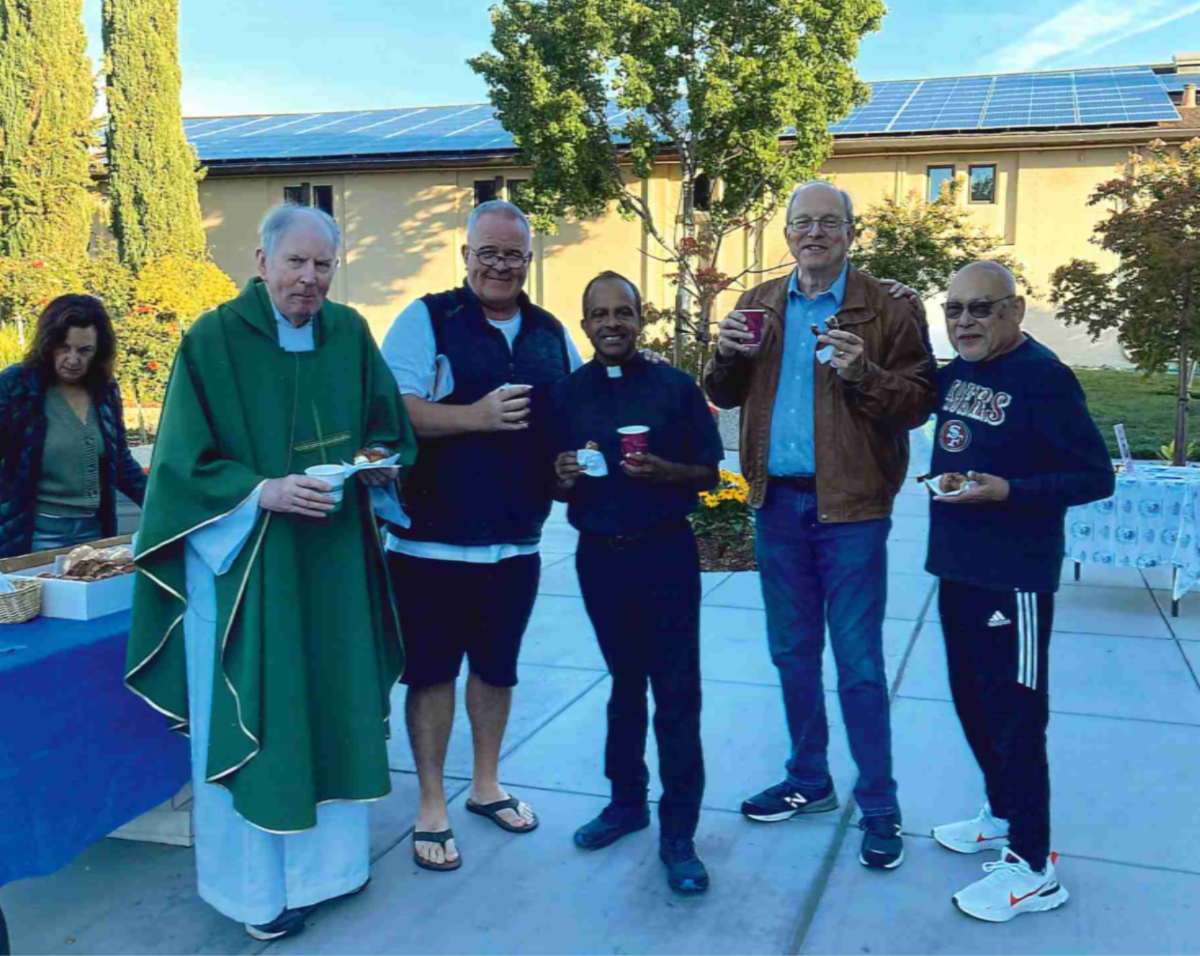Dear Friends,
Welcome to the holy season of Lent.
Each year Lent invites us to slow down, to examine our hearts, and to return to what is essential. This year, a theme from the Ignatian Spirituality Network has stayed with me: Pressing On.
We live in a time when polarization deepens, rhetoric grows harsher, and injustice wounds communities. It is easy to grow tired. It is easy to feel overwhelmed. It is easy, even subtly, to become cynical. Pressing on with hope can feel exhausting. And yet, faith does not give us permission to give up.
Michael Libunao-Macalintal expressed it beautifully:
“Hope is a stubborn thing — it pushes past doubt and despair, it barrels its way through our confusion and suffering. It lights itself in us when all feels lost, when we are dealing with the rubble of what once was, when we must dig ourselves in and try again.

…Hope doesn’t burn out, it doesn’t give up — hope doesn’t know how to give up. Hope is stubborn. And make no mistake, friends, we are stubborn people.”
To understand this more deeply, we turn to Psalm 1. Psalm 1 describes two ways of living. One is like chaff — light, scattered, blown about by every wind. The other is like a tree planted by streams of water. Not a tree surviving by accident, but one deliberately planted, intentionally rooted, consistently nourished.
“He is like a tree planted by streams of water,
that yields its fruit in due season,
and whose leaves do not wither.”
It promises only this: the leaves do not wither. Why? Because the roots go deep. That is stubborn hope.
Our world often feels like shifting sand. News cycles change hourly. Voices compete for attention. Anger travels faster than understanding. Even within the Church, tensions can surface. If we are not careful, we become reactive, scattered, spiritually dehydrated — like chaff carried by every passing wind.
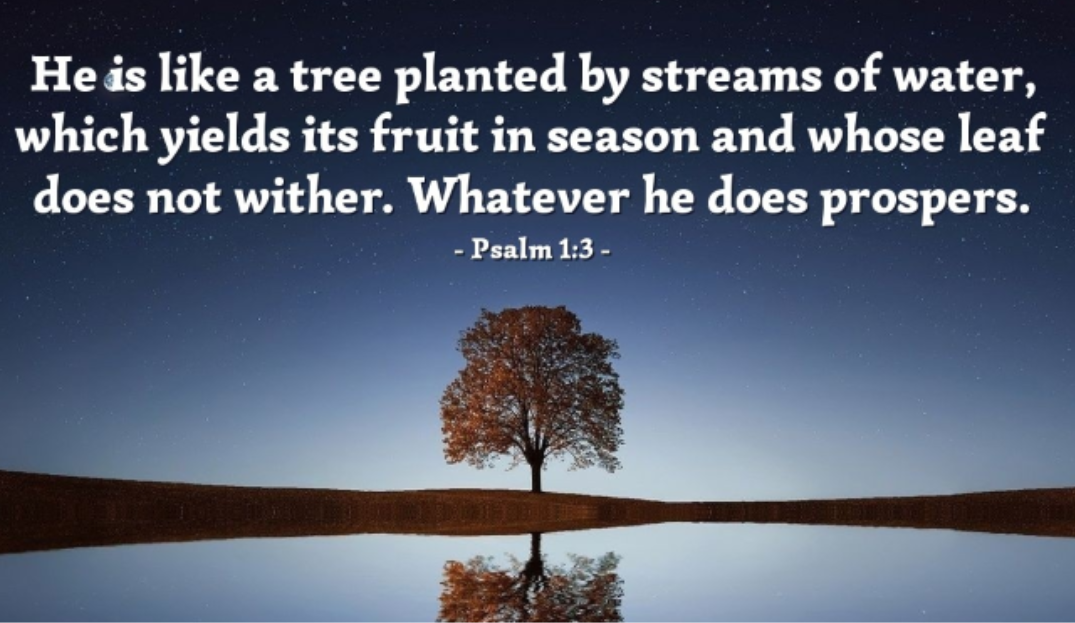
But Psalm 1 offers another posture:
rootedness.
A tree planted by water does not panic when the wind rises. It does not uproot itself when seasons change. It draws quietly from a hidden source.
For us, that hidden source is Christ. Lent is about returning to the stream. Prayer, silence, repentance, Scripture, Eucharist, works of mercy and justice — these are not spiritual decorations. They are irrigation. This Lent, we are offering many opportunities for you to deepen your spiritual life — additional prayer times, Stations of the Cross, reconciliation services, reflections, Eucharistic adoration, and gatherings that invite us into deeper conversion and justice.
Please do not miss them. Do not let this Lent pass as just another season on the calendar. Do not settle for surface-level observance. Come to the stream.
Fr. Paulson
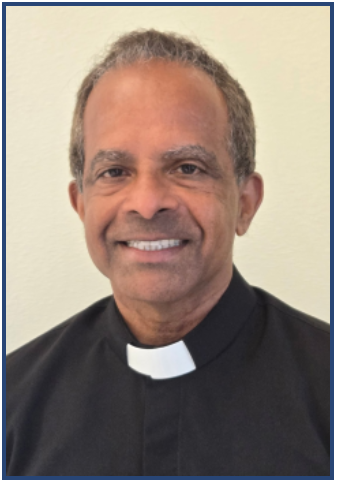
Resources for your Lenten Journey

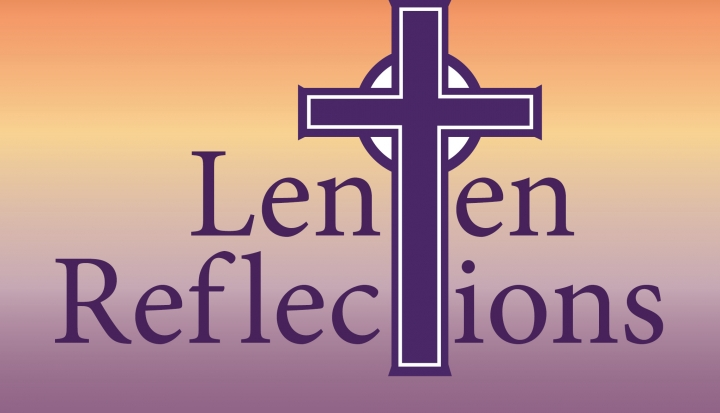
Lenten Reflections
Thursdays • 10:00am - 11:00am • CTK Chapel
Presenter - Pamela Prime
- Feb 26 – A Time to Embrace Wisdom
- Mar 5 – A Time to Receive Mercy and Forgiveness
- Mar 12 – A Time to Experience the Peace of Christ
- Mar 19 – A Time to Become the Love We Seek
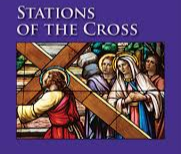
Please join us Fridays in Lent to pray
The Stations of the Cross
Different ministries will host each Friday in Lent:
Christ the King Church
Fridays - 6pm
February 20, 27 | March 6, 27
St. Stephen
Fridays - 12 pm - Guided Outdoor Mediations
Please note: Friday, March 20, we will have Stations of Cross at 6pm
followed by a soup dinner.
SS Campus will be open for self-guided outdoor Stations
Monday & Wednesday, 11am-2pm
Friday until 6pm
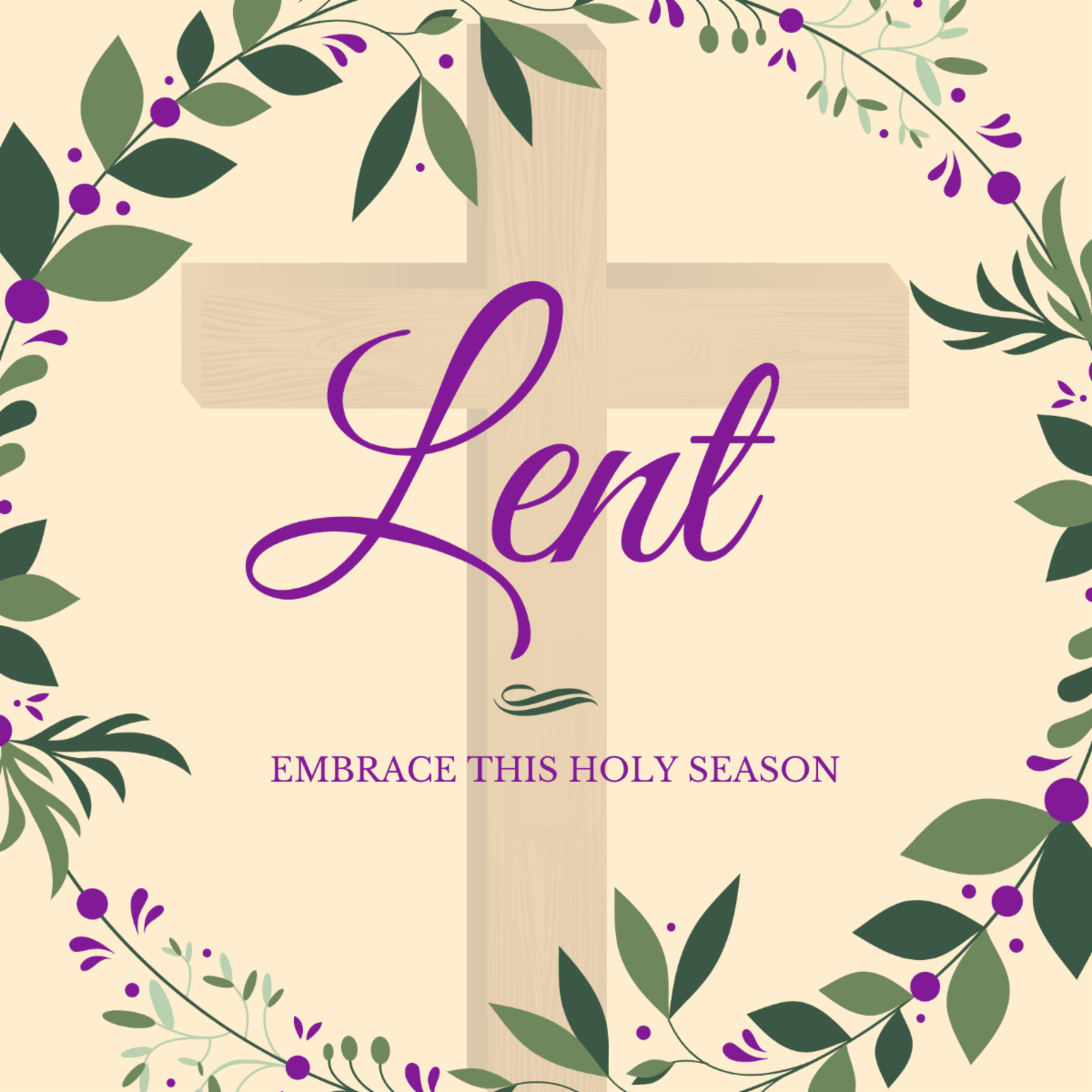
Parish Lenten Reconciliation Services
Christ the King Church
Saturday, March 21 | 2:30pm
Thursday, March 26 | Confessions - 8am before Mass
St. Stephen Church
Friday, March 13 | 6:30pm
Stations of the Cross will begin at 6pm
What's Happening at Christ the King - St. Stephen

Special Lenten Events
Lenten Retreat with Fr. Paulson
Saturday, March 14 • 9:30 a.m. – 12Noon • St. Stephen Church
Embracing the Paradox & the Cross: A Paradox and a Sign of Contradiction
Retreat with Pamela Prime
Saturday, March 28 • 10:00 a.m.–12:00 Noon • CTK Parish Hall
The Healing of Our Hearts
Seder Meal with Rabbi Roberto Graetz
Tuesday, March 31 • 6:00 p.m. • St. Stephen Hall
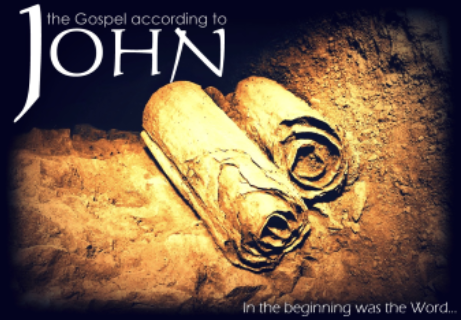
Adult Education
Our 11-week study of The Gospel of John
will begin on March 2.
An eleven-week study of The Gospel According to John will begin on Monday, March 2. The Gospel of John is a testament to the divine nature of Jesus, the Word made flesh, the Light of the World. Study material is available as a paperback or e-book at LittleRockScripture.org.
We meet on
Mondays at 10 AM in Room A in CTK’s Parish Hall.
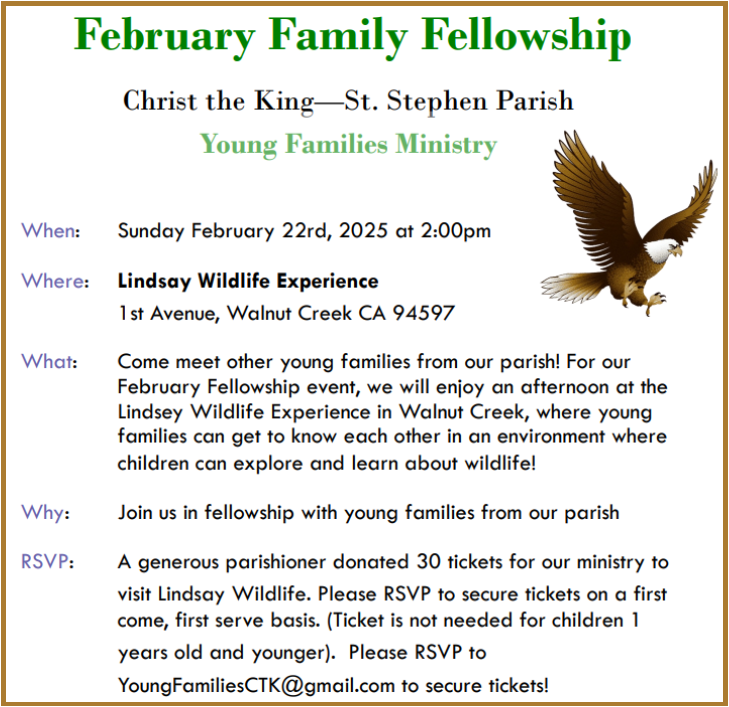
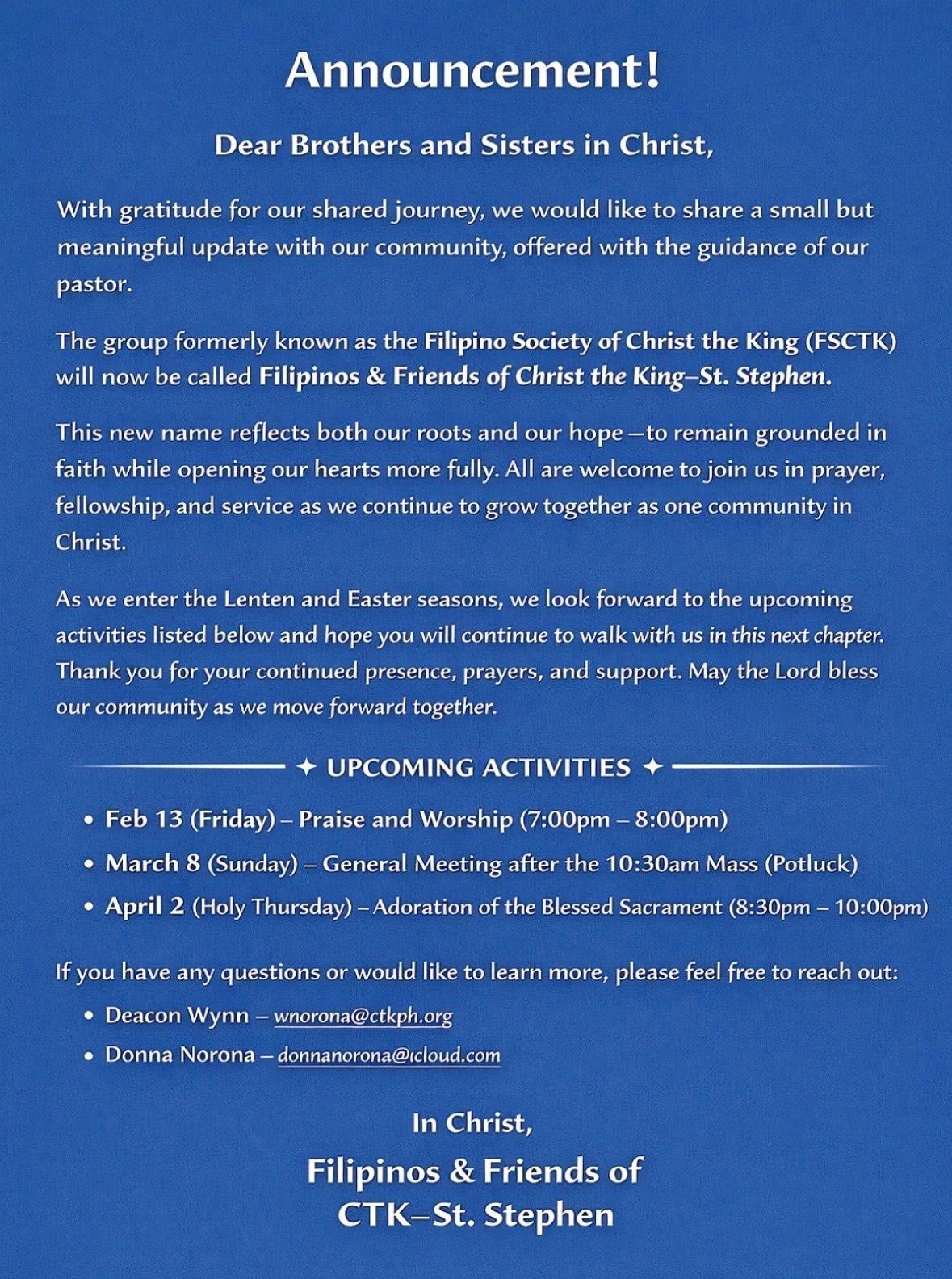
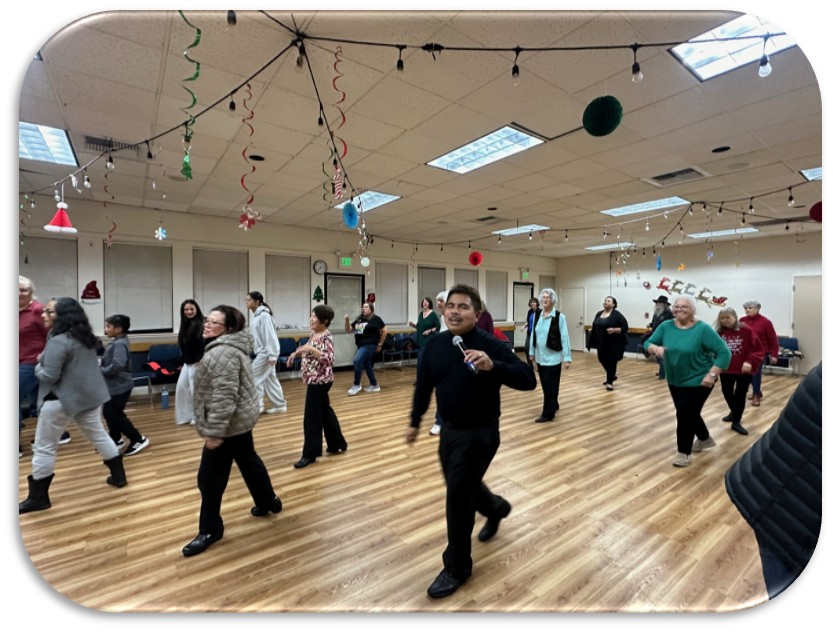
Dance Ministry
Join us on Thursdays (New Day)
February 26 at 7pm
In CTK's Parish Hall
Come out and Learn how to Line Dance,
Grow in Faith, and Build Community
Questions? Contact Nelson Gonzales ngonzales@ctkph.org

Dress a Child Around the World Sewing Ministry
We will meet for our next sewing session, next Wednesday, February 18th, 9:00 am, at the CTK Parish Hall.
These are the dates of rest of our sewing sessions through May 2026: March 18, April 29, and May 27.
For more information, please contact Maria Elena Sandoval at sfcity4@gmail.com.
Livestreamed Masses
The following Masses are livestreamed for those unable to celebrate with us.
Christ the King and St. Stephen Campus
Monday - Saturday
9:00am
First Friday Exposition of the Blessed Sacrament and Mass
Exposition of the Blessed Sacrament will begin at 8:15am followed by Mass at 9:00am
Saturday
4:00pm Vigil Mass
Sunday
10:30am
Staying Connected Archive
Contact Us
Send us a Message
Christ the King Church
199 Brandon Rd, Pleasant Hill CA
St. Stephen Church
1101 Keaveny Ct, Walnut Creek, CA
